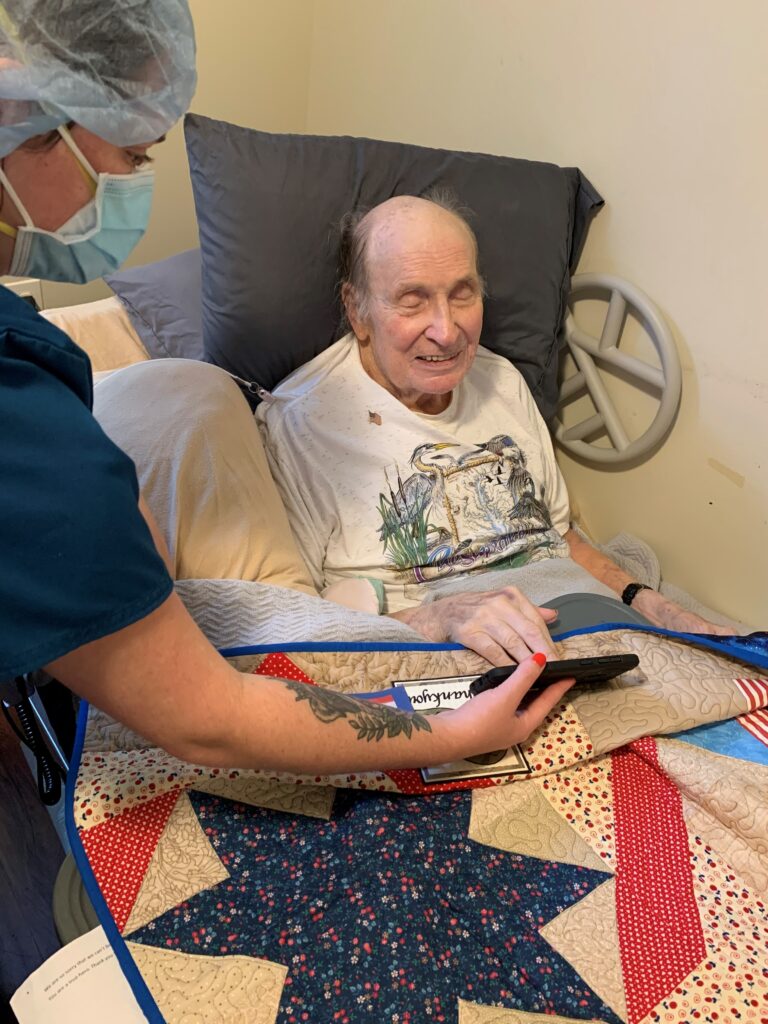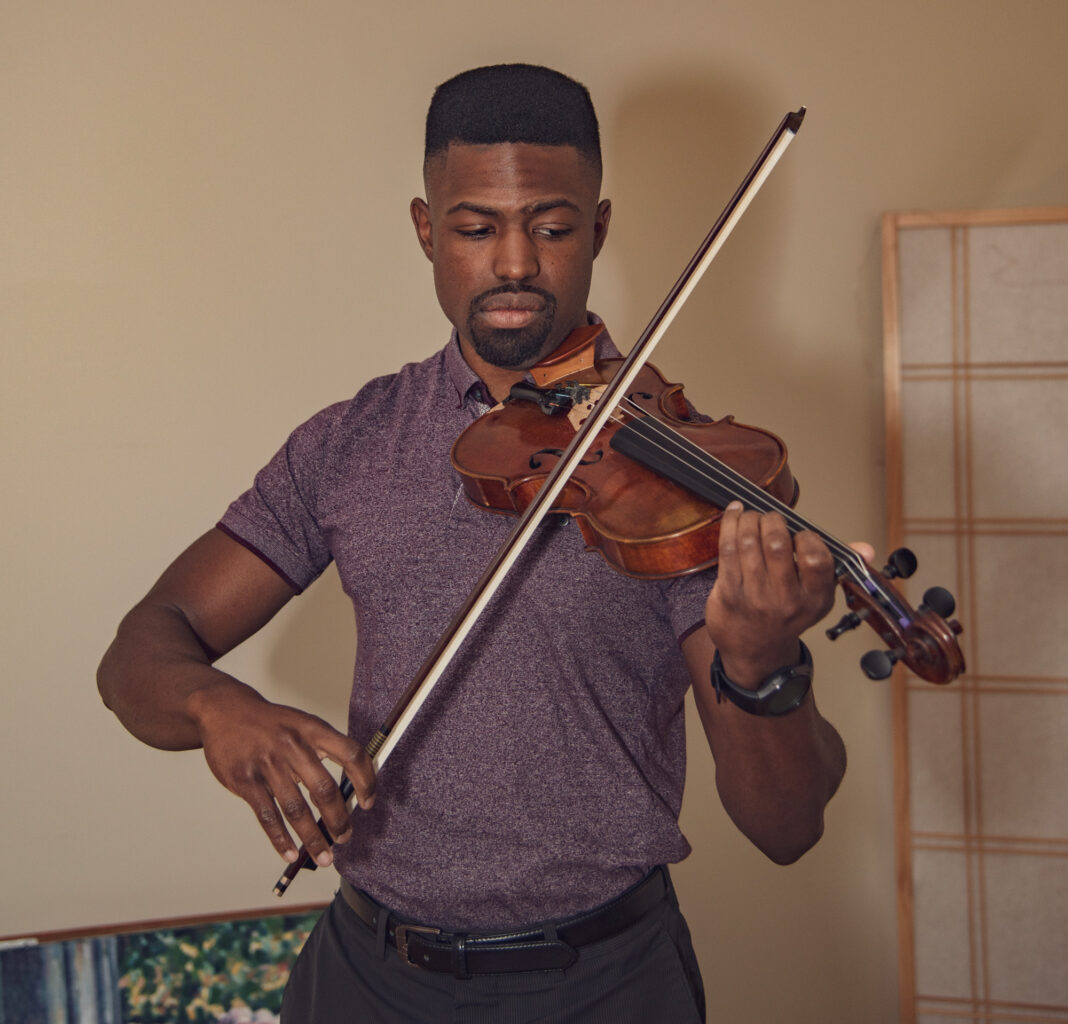
Registered Nurse Case Manager Kelly Brennan plays the video of active-duty military volunteers thanking veterans for their service during Bert Behringer’s virtual honor salute at Morningside House of Friendship. The patriotic quilt and handmade Thank You card that is a signature of the salute are on his lap.
Hospital beds made of easily cleaned metal as opposed to porous wood. Public health reporting in support of the science of epidemiology. Laura Spinney, author of the book, “Pale Rider: The Spanish Flu of 1918 and How It Changed the World,” wrote about these and other innovations that came from that pandemic, which she called “the worst disaster of the 20th Century.”
How quickly the world can forget. Until 2020, that historic event was a blip in our history textbooks. But the innovations that came from it are lasting and playing an important role in how this 21st-Century world is responding to the novel coronavirus pandemic.
Perhaps one of the top innovations that came from the COVID-19 pandemic is telehealth. As hospice, supportive and bereavement care professionals, our ideal consultation is in person without masks and with the ability to comfort with touch. When restrictions by the Centers for Disease Control recommended changes, our information services team went into overdrive to ensure that our care teams could still visit face-to-face with a patient, albeit through the screen of a tablet, smartphone or laptop.
Telehealth has allowed us to reach more people who need us. With telehealth platforms there is no travel time for an urgent response from a nurse practitioner. A supportive care patient need not make the trip across the bridge for a Hussman Supportive Care Center visit. A client experiencing grief can keep their counseling appointment from anywhere in the world. As our clinicians, in full personal protective equipment, are slowly returning to in-person visits, we know that telehealth technology is an important tool that we will always use in our mission of caring for life.
Another innovation is more of a rediscovery – the phone call. With a volunteer corps that has since the very beginning of our organization devoted itself to being there for patients and their caregivers, our compassionate care volunteers suddenly were no longer able to visit in person. It was not long before we had a dedicated corps of Caring Callers, volunteers who make weekly calls to new patients. They ask each patient if they would like routine calls from a volunteer. By August, 240 patients and caregivers look forward to a regular check-in cheerful, supportive voice.

Certified Therapeutic Musician plays the violin in one of several Integrative Arts videos created to provide comfort to our patients and caregivers virtually. Photo by Natalia Tull
During the initial call, the Caring Caller offers services that include Integrative Arts videos and, for Veteran patients, virtual Honor Salutes. The integrative arts videos come to them through an emailed link that takes them to a YouTube playlist featuring brief sessions of yoga, guided meditation, therapeutic music and even a video of horses from Maryland Therapeutic Riding. Christine Wilson, Director of Advancement and Volunteer Services, said everyone is very appreciative when they get the video link, even the volunteers. “The Caring Callers say, ‘My gosh! It was so great to have these videos. They even help me!”
More than 180 Honor Salutes, most of them virtual, were completed by the end of August. Part of the reason is we have volunteers who reach out to new Veteran patients every week, offering the honor salute to every Veteran patient. The volunteer team works from a Veterans report to arrange to have an Honor Salute kit with patriotic quilt, thank you cards, certificate of appreciation and an American flag lapel pin delivered to them. A link is emailed or texted to a virtual salute that includes a message from active-duty military and the anthem of their service brand sung by an active-duty volunteer. Presently, 27 volunteers don masks and gloves to drop off the kits at the front doors of patients’ homes.
Of course, we look forward to the day when we can shake hands, provide support and gather in support groups of more than 10 people. At the same time, the COVID-19 pandemic has brought another level of care to our services that is not bound by geography and affords a different kind of accessibility. In-person or via telehealth, we are there when you need us.
To volunteer during this critical time, please contact volunteers@hospicechesapeake.org or call 410-987-2003.


